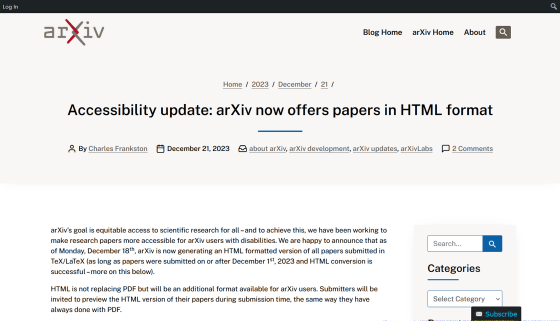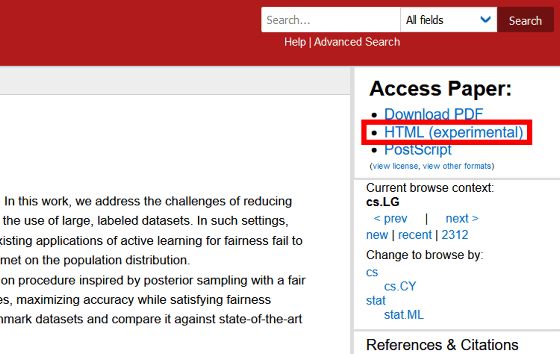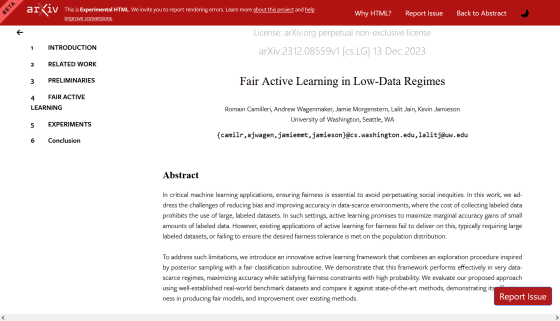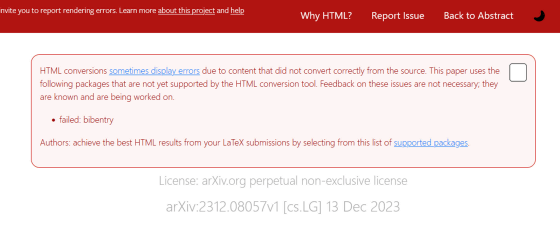The world's largest preprint server 'arXiv' can finally display papers in HTML format, improving accessibility for people with visual impairments and dyslexia

Accessibility update: arXiv now offers papers in HTML format – arXiv blog
https://blog.arxiv.org/2023/12/21/accessibility-update-arxiv-now-offers-papers-in-html-format/

arXiv was developed in 1991 by physicist Paul Ginsparg , then a researcher at Los Alamos National Laboratory, as a server for storing preprints in the field of physics. Operation of arXiv was then transferred to Cornell University, and it is now used by scientists around the world to openly share the latest scientific research results.
In October 2023, we will receive donations and grants totaling more than $10 million (approximately 1.4 billion yen) from the Simons Foundation and the U.S. National Science Foundation, and will work on updating the code and the ability to display papers in HTML format. I was reporting that.
Approximately 1.5 billion yen of funding will be provided to the world's largest preprint server 'arXiv', a plan to be used for cloud migration and code modernization - GIGAZINE

Then, in a blog post on December 21, 2023, arXiv announced that it had started generating HTML format for submitted papers. The target of HTML display is TeX / LaTeX , a typesetting processing system widely used as a paper writing tool, and papers submitted after December 1, 2023.
Of course, we continue to support PDF viewing, so users can read papers in either PDF or HTML, whichever they prefer.
When you actually access a paper posted on arXiv after December 1, 2023, you will see not only 'Download PDF' but also 'HTML (experimental)' under 'Access Paper:' on the right side. It has been. To open the paper in HTML, click this 'HTML (experimental)'.

Then, the paper was displayed in HTML format.

Please note that some packages cannot be converted to HTML correctly at the time of article creation, and there are also cases where HTML format is not available even for papers submitted after December 1st.

The request to ``display papers in HTML'' was received by researchers with disabilities to arXiv. HTML articles can be easily and accurately read by screen readers and other technologies, helping researchers with disabilities such as blindness, low vision, and dyslexia access academic articles.
arXiv says, 'We understand that HTML conversion is not yet perfect. HTML is currently in an experimental stage and we are working to make the conversion more accurate. For now, all papers are Not all convert to HTML correctly, but researchers with disabilities say they need HTML now for accessibility. We will continue to work with the community to improve the conversion. On the one hand, we wanted to provide accessibility as quickly as possible.Although arXiv does not block or hold back posts that fail HTML conversion, small changes in the Tex code may sometimes improve HTML conversion. We therefore ask posters to carefully review the HTML version of their posts.'
Related Posts:
in Web Service, Posted by log1h_ik






